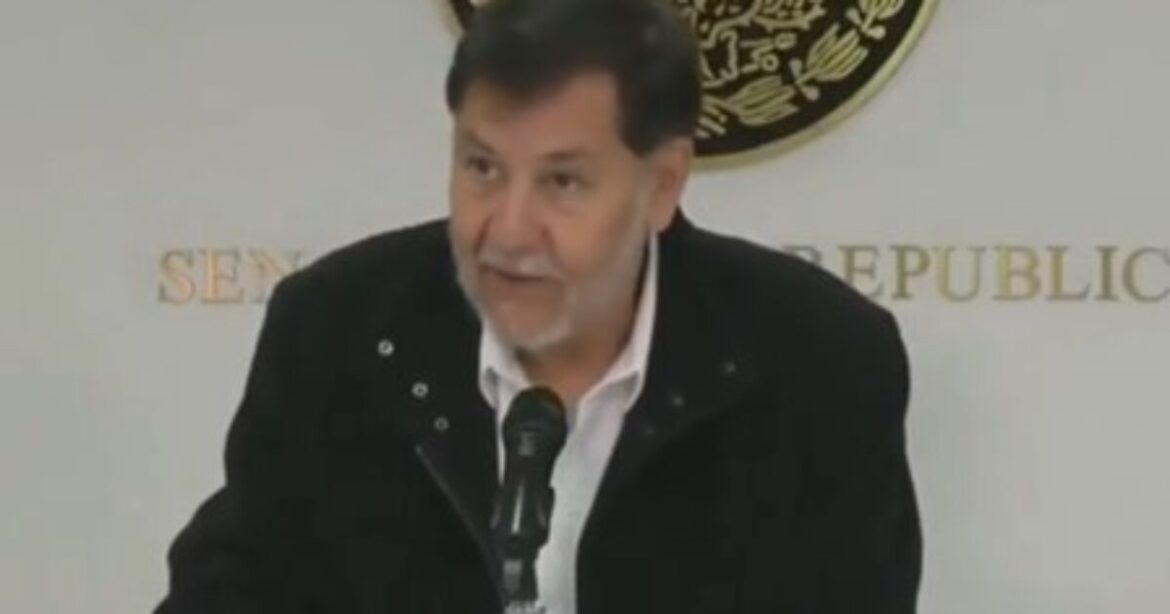As chaos continues to engulf Los Angeles amid a wave of illegal alien-fueled unrest, Mexico’s political elite are escalating their rhetoric—this time with a direct challenge to U.S. sovereignty. Gerardo Fernández Noroña, the President of the Mexican Senate, is openly advocating for the annexation of large swaths of the American Southwest in what many are calling a modern-day push for “La Reconquista.”
Speaking to reporters in Mexico City, Noroña stunned observers by recounting a meeting he had with then-President-Elect Donald Trump in 2016. “I said ‘yes, we’ll build the wall, yes, we’ll pay for it,’” Noroña claimed, “but we’ll do it according to the map of Mexico from 1830.” That map, which he proudly held up before the press, included modern-day California, Texas, Arizona, New Mexico, Nevada, Utah, and parts of several other U.S. states as rightful Mexican territory.
“If you look at the history, nearly a third of U.S. territory once belonged to Mexico,” Noroña declared. “The Treaty of Guadalupe Hidalgo gave rights to our people that were never respected. We were there before the United States.”
He pointed to cities like Los Angeles and Laredo as examples of areas that, in his view, were never truly “American.” He then provocatively asked, “How can we talk about liberating Los Angeles and California? Liberate them from who?” He answered his own question by implying that Mexican heritage and the Spanish language still dominate the region. “You don’t need to speak English to live in Los Angeles,” he said with a smug grin.
Noroña’s comments come as his political ally, Mexican President Claudia Sheinbaum, added fuel to the fire. Just days earlier, Sheinbaum praised the violent protesters in Los Angeles as “good men and women” and threatened that Mexicans living in the U.S. would mobilize in retaliation if Washington imposes a remittance tax—a move that would strike at the heart of Mexico’s economy, where money sent from the U.S. makes up nearly 4% of GDP.
Sheinbaum also lashed out at the Trump Administration for trying to restore order, accusing it of “violating the dignity of migrants” and “separating families”—talking points that closely mirror the language of open-borders advocacy groups operating inside the U.S.
The growing boldness of Mexican officials, paired with the spike in civil unrest on American soil, is raising alarms. Many believe these incendiary statements aren’t just political posturing—they reflect a deeper ambition to reshape the U.S.-Mexico relationship through demographic pressure and cultural dominance.
President Trump has yet to respond publicly, but speculation is mounting that he may reinstate tariffs, slash foreign aid, or introduce new restrictions on remittances to hit back at Mexico’s government.
As violence continues in U.S. cities and foreign officials float ideas of annexation and “liberation,” the question looms: how long will America tolerate open provocation from a neighboring nation it supports with billions in trade and aid?

